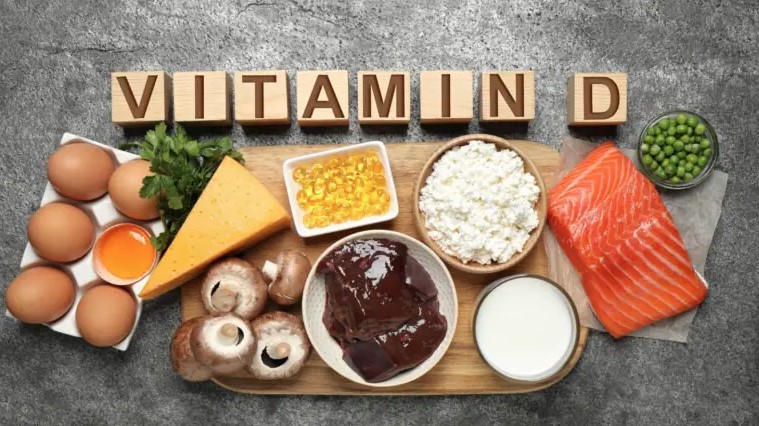A human body produces vitamin D as a response to sun exposure. A person can also boost their vitamin D intake through certain foods or supplements.Vitamin D is essential for several reasons, including maintaining healthy bones and teeth. It may also protect against a range of diseases and conditions, such as type 1 diabetes.
Despite its name, vitamin D is not a vitamin, but a
prohormone, or precursor of a hormone. Vitamins are nutrients that the body
cannot create, and so a person must consume them in the diet. However, the body
can produce vitamin D however in places with less sun exposure all year round
we should be consuming enough through diet or supplements to ensure we don’t
have a deficiency.
Vitamin D play a few vital roles in the body;
Bones; It’s well-documented that vitamin D is essential for the proper absorption of calcium, and it’s been shown to greatly reduce fracture risk in two ways. First, it helps with the formation of stronger bones; second, Vitamin D helps improve balance and prevent falls by enhancing muscle contraction.
Mood; When it comes to being happy, the scientific evidence is clear, lower vitamin D levels have long been associated with a higher incidence of depression. Interestingly, when vitamin D3 supplements were compared to anti-depressants in a 2014 study, the positive effect of vitamin D3 on mood was comparable to the effects of the anti-depressants. When a new immigrant from a sunny country arrives to canada, often Dr.s will recommend they take a supplement to make up for the difference in climate.
Muscles; One of the byproducts of vitamin D’s breakdown, called 1,25(OH)2D, enters muscle cells and affects the nucleus. Once there, the vitamin D metabolite enhances the cell’s contraction ability. Since muscles work by contraction and relaxation, a muscle’s ability to contract is essential to its strength and response to outside forces. Vitamin D, then, makes muscles stronger in a very direct way.
Lungs; As many studies indicate, vitamin D plays a role in keeping our lungs healthy due to vitamin D possessing a range of anti-inflammatory properties – with greater concentrations of vitamin D resulting in greater lung health benefits.
Heart; Research has demonstrated an inverse relationship between vitamin D levels in the blood and high blood pressure (HBP or hypertension). In other words, the lower the vitamin D, the higher the blood pressure. The excess strain and resulting damage from high blood pressure causes the coronary arteries serving the heart to slowly narrow and harden, greatly increasing the risk of a heart attack.
Kidneys; Because vitamin D is a fat-soluble vitamin, it helps to regulate kidney function and plays a very beneficial role in treating kidney disease.
Weight Loss; When you don’t have enough vitamin D, you feel hungry all the time, no matter how much you eat. That is because low levels of vitamin D interfere with the effectiveness of leptin, the appetite hormone that tells you when you are full. When vitamin D is replenished and back to normal levels, leptin’s actions are restored, thus creating feelings of satiety and aiding in weight loss.
Cognitive Function; In the past few years, many studies have linked shortage of vitamin D with cognitive impairment in older men and women. Research has demonstrated that vitamin D has a variety of neuroprotective roles, including helping to rid the brain of beta-amyloid, an abnormal protein that is believed to be a major cause of Alzheimer’s disease. Additionally, an international study (the largest to date) shows that seniors with very low levels of vitamin D are at twice the risk of Alzheimer’s disease.
Deficiency; Although the body can create vitamin D, a deficiency can occur for many reasons.
Skin type; Darker skin reduces the body’s ability to absorb the ultraviolet radiation B (UVB) rays from the sun. Absorbing sunlight is essential for the skin to produce vitamin D.
Sunscreen; A sunscreen with a sun protection factor (SPF) of 30 can reduce the body’s ability to synthesize the vitamin by 95% or more. Covering the skin with clothing can inhibit vitamin D production also.
Geographical location; People who live in northern latitudes or areas of high pollution, work night shifts, or are homebound should aim to consume vitamin D from food sources whenever possible.
Breastfeeding; Infants who exclusively breastfeed need a vitamin D supplement, especially if they have dark skin or have minimal sun exposure. The American Academy of Pediatrics recommend that all breastfed infants receive 400 international units (IU) per day of oral vitamin D.
Although people can take vitamin D supplements, it is best to obtain any vitamins or minerals through natural sources wherever possible.Getting sufficient sunlight is the best way to help the body produce enough vitamin D. Plentiful food sources of vitamin D include:
fatty fish, such as salmon, mackerel, and tuna, egg yolks, cheese,
beef liver, mushrooms, fortified milk
Dosage should be discussed with your doctor however sensible
sun exposure on bare skin for 5–10 minutes, 2–3 times per week, allows most
people to produce sufficient vitamin D. However, vitamin D breaks down quite
quickly, meaning that stores can run low, especially in winter.
If someone is taking supplements, they should choose their
brand carefully, as the FDA do not monitor the safety or purity of supplements.
Even though there are a selection of vitamin D supplements available, It is the total diet and eating pattern that is most important in disease prevention and good health. It is better to eat a diet with a variety of nutrients than to concentrate on one nutrient as the key to good health.
Email Bskinner@sstcanada.com to schedule a Nutrition session with SST to make sure you are on the healthiest path possible!







